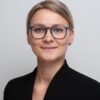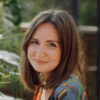“Creating space to imagine a radically different tomorrow” with Futures Philanthropy
Philea, the Copenhagen Institute for Futures Studies and the PEXcommunity hosted a special edition of “What if? Reimagining philanthropy” on 20 April to launch Philea’s Futures Philanthropy initiative and take a closer look at how philanthropy can think about tomorrow, today, focusing on discovery, innovation and long-term planning.
“Philanthropy of all sectors has unique role in thinking longer term, in creating spaces to imagine a radically different tomorrow”, said Delphine Moralis, CEO, Philea in opening the event. This would be reiterated numerous times by the participants, which brought together almost 70 representatives of foundations, philanthropy infrastructure and civil society organisations, consultancies, academia and think tanks.
When thinking about futures philanthropy, participants’ associative patterns demonstrated an abundance of hope and an appetite for change: innovation, collective impact, participation, creativity, unusual alliances, intergenerational fairness.
Futures Philanthropy pursues the building and sharing of futures literacy in the European philanthropy sector. Open dialogue and collective exploration are at the core of this effort, and the launch event was the first building block. The discussion allowed for scoping out the range of questions philanthropy has to be aware of while working with the future for building better decisions today.
Ben Holt, Global Lead for Strategic Foresight, the International Federation of Red Cross and Red Crescent Societies (IFRC), made the case on why philanthropy and civil society as a sector have a unique role in adapting futures thinking and strategic foresight. Because, ultimately, whose future are we talking about?
Simon Østergaard, Senior Advisor & Futurist, the Copenhagen Institute for Futures Studies, challenged participants to abandon the attempts of making sense of the future from the perspective of today, but implored us to instead learn about the present through the lens of the future. How to allow for mental flexibility when we start working with the future?
Katy Hartley, Director of Strategy and Special Initiatives, Laudes Foundation, shared the journey of the foundation in identifying its role in addressing long-term global challenges and supporting futures literacy of grantees. Katy also posed pertinent questions on how to balance learning from the past and looking forward, and when to move from literacy and anticipation to action.
True to the concept of “questioning” which is at the very heart of each “What If? Reimagining philanthropy” session, this edition was marked by questions from the participants. How to reinvent ways of working inside philanthropic organisations in terms of shifting power and breaking siloes? How to organise an inclusive foresight process and enhance futures literacy across civil society including philanthropy? How can we improve cooperation with Global South in philanthropy? What role will philanthropy play in addressing long-term challenges? How can we facilitate the transition to preferable futures vision and scenarios from present action?
As suggested by Simon, let’s learn about the present through the lens of the future. For this, we are embarking on an exploration of 21st century philanthropy, seeking to generate insights about critical upcoming issues, risks and opportunities. Your perspective matters deeply, share with us your perspective on the future of philanthropy.
Contact


